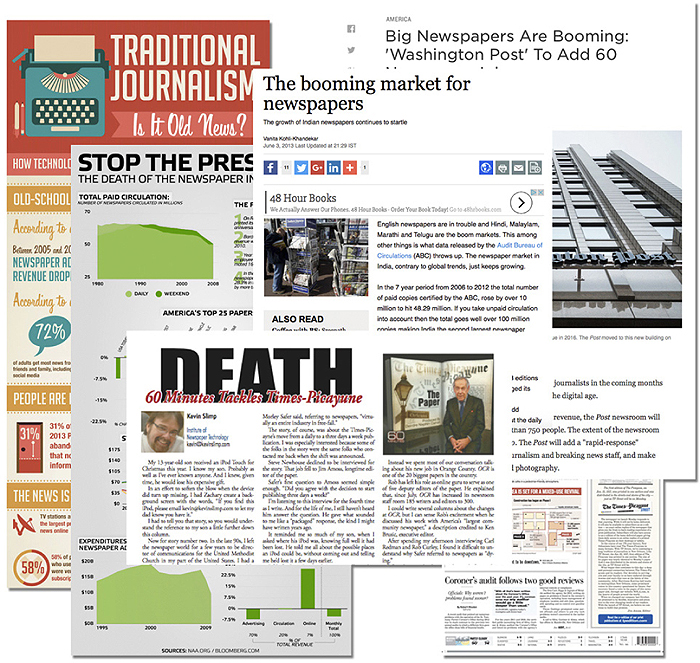
Kevin Slimp, technology
Kevin Slimp is director of the Institute of Newspaper Technology.
Email questions to him at
kevin@kevinslimp.com

Convention season is an interesting time in the life of a speaker. Most years, I’ll travel directly from one convention to the next between late January and June. Some years, the travel doesn’t slow until July or August.
I’ve purposely cut my travel this year, to make time for a couple of new projects I’ve begun. That’s a primary reason I’m enjoying convention appearances so much this year.
I just returned from Columbus, Ohio, where I spoke to the Ohio Newspaper Association. Actually, I believe the association officially changed its name a few minutes before I came to the stage. Either way, they are still “ONA.”
After more than 20 years of speaking, you would think I would be past being surprised by audiences. It’s become the norm for groups to add seats at the last minute when I’m speaking about the state of newspapers, but it still surprises me for some reason.
A steady stream of guests lined up to ask for a few moments to visit after my speech. With five hours to kill before my flight home, I offered to find a place near the registration table to meet with folks for a few minutes each.
I attempted to spend as much time as possible answering the questions of each person, while cognizant others were waiting in line for their turns.
I can’t tell you how much it pleases me to meet with publishers and others who see a real future for their newspapers and who attend conferences, classes, read journals and even stand in line to gain insight into ways to improve their operations and products.
What was on the mind of Ohio’s newspaper leaders? The discussions varied, but most centered around ways to improve their newspapers and the methods used to get them out.
“Should we outsource our ad design?”
That came up more than once. At one point, a group of us gathered around a table and discussed options to get the
best results for their small community papers. We discussed the possibility of a joint “co-op,” where small newspapers in adjoining communities might work together, giving them more control over the creative process while sharing in the expenses.
We discussed the best options for outsourcing, for papers that think that that is the best option for them. Should they use designers who are part of a huge national group, a company outside the country, or a smaller group that might offer more personalized attention?
Should we keep everything “in house,” finding ways to combine different areas of pre-press production that benefit our papers?
Like most important questions in life, the quickest answer is often not the best. I reminded publishers to consider long-term effects of their decisions. Are we risking long-term success for the sake of short-term savings?
A new publisher asked advice about several areas, including the design of the paper itself. I suggested taking advantage of as much reading, online training and local training opportunities as possible. The publisher of a community newspaper wears many hats, and it’s easy to become overwhelmed by the sheer amount of added work when the job title changes from editor, or ad manager, to publisher.
Several editors and publishers asked me to look over their papers and make suggestions. I laughed when one said, “Wow! You’re really good at this.”
I told her it was like anything else. After you’ve done it a few thousand times, you get pretty good at it.
What did I take away from my day in Columbus?
Ohio is an interesting place to be in the newspaper business. There are several big cities, meaning there are more metro papers than in most states.
Like most places I visit, large papers are trying to find new ways to attract advertising dollars and readers. When asked, my advice was to remember what readers want, because readers and advertisers go hand in hand.
Smaller papers have their own set of issues. For the past century or more, newspapers in smaller communities have dealt with many of the same issues as their larger counterparts. In addition, competition from nearby metros looking for new readers is increasingly creating more competition between metros and nearby community papers.
I was glad to see fire in the belly of Ohio’s newspaper community. I visited with reporters who are passionate about their calling, editors and ad managers serious about improving their products and service, and publishers who still feel confident about the future.
Convention season always seems to come at the right time. After spending a couple of months working from my office, convention season reminds me our industry is alive and well, and will be for decades to come.
That’s one reason I love my job so much.
